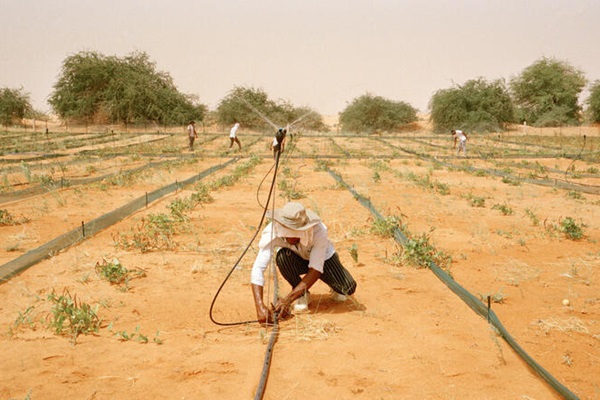News
Search by
All news

Locust management and its importance to food security
05/06/2025
As desert locusts recently resurge in North Africa once again in March-May 2025, the Food and Agriculture Organization of the United Nations (FAO) reflects on 80 years of coordinated global locust management.

How agroecology supports One Health
03/06/2025
Discover how agroecology works with nature to protect the health of plants, animals, people and the environment.

What’s driving emerging plant and animal pests and diseases?
29/05/2025

FAO’s new exhibition explores the remarkable journey of potato
27/05/2025
In the lead-up to the International Day of Potato on 30 May, FAO has unveiled an exhibition, The Journey of the Potato, a memorable exploration of one of the world’s most important and widely consumed food crops.
The exhibition is set to run from 26 - 30 May at the FAO headquarters in Rome, Italy. It takes visitors on a global journey spanning 8 000 years, tracing the potato’s roots to its birthplace near Lake Titicaca in the Andes Mountains, where early farmers first domesticated wild tubers.

FAO celebrates World Bee Day and International Tea Day with joint exhibition
21/05/2025
-copy.tmb-th600x400.jpeg?sfvrsn=8acefc6f_1)
World Bee Day 2025: Africa honey production has highest global growth rate
20/05/2025

World Bee Day 2025: Protect the pollinators who protect us
20/05/2025
FAO celebrated World Bee Day 2025 at a special event hosted by the Federal Democratic Republic of Ethiopia.
This year's theme for World Bee Day, ‘Bee inspired by nature to nourish us all’, highlights the critical roles that bees and other pollinators play in agrifood systems and the health of our planet's ecosystems.

Bees for biodiversity in Belize
19/05/2025
Beekeeping transformed Eventir Cal’s life in Belize, helping him recover his livelihood after an injury while boosting biodiversity, crop yields, and climate resilience. Supported by FAO and local partners, he now protects bees, promotes sustainable farming, and inspires his community.

Five reasons pollinators matter for One Health
16/05/2025
Pollinators, such as bees, birds, butterflies, and bats, play a vital role in the health of plants, animals, people and the environment. This World Bee Day, here are five reasons pollinators are vital contributors to One Health.

Where the wind carries hunger
12/05/2025
For generations, wheat has been the backbone of life in Central Asia and the Caucasus. But wheat rusts—a collection of airborne fungal diseases with poetic names like yellow, leaf and stem—has become an intensifying threat across the region. Find out how FAO is working with partners to tackle the threat.
Plant Production and Protection in the global news

Lo que las abejas les están diciendo a las Américas. Por Yurdi Yasmi (FAO)
20/05/2025
Ayudan a cultivar los alimentos que comemos, polinizan las plantas silvestres que sustentan enteros ecosistemas y sostienen los medios de vida de los apicultores y los agricultores por igual. Cuando los polinizadores están sanos, la agricultura prospera.

What the bees are telling us
20/05/2025

“Bee Engaged with Youth” to Safeguard Bees and Other Pollinators
20/05/2024
Pollination is a fundamental process that is necessary for the survival of our ecosystems. It plays a crucial role in food security and agrobiodiversity. Pollinators support vital ecosystem functions for nature, agriculture and human well-being, acting as the invisible cornerstone of functioni...

Securing the Future of Millets
05/04/2024

